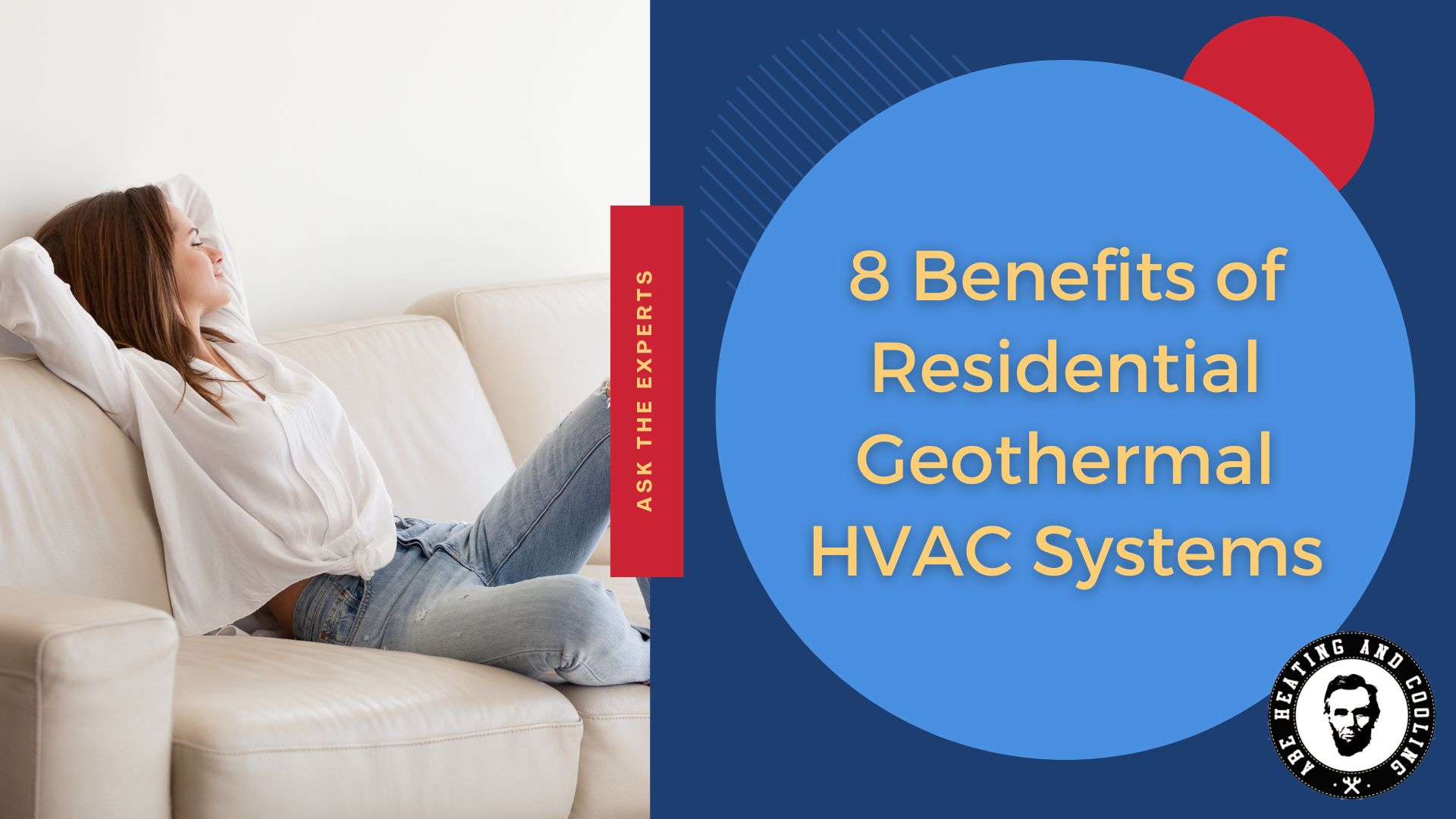“Abe's Heating and cooling were professional and on time. they helped me with two time sensitive projects and did excellent work. I know who I'll be calling if I should ever need an HVAC technician.”
Blog

When researching heating and cooling options for your home, you’ve likely noticed that geothermal heating and cooling systems carry a higher initial price tag compared to standard HVAC systems. It’s true — opting for a geothermal solution typically involves an initial investment that is about 30% to 40% more. However, this initial cost is quickly offset by the array of long-term advantages that geothermal systems bring to the table.
Beyond the initial investment in a geothermal heat pump (GHP), there lie numerous compelling benefits that may make a geothermal system a “must have” when it is time to upgrade the HVAC equipment in your home.
At the heart of the geothermal advantage is its incredible energy efficiency. Geothermal systems use the earth’s stable underground temperature to heat and cool your home, significantly reducing energy consumption. According to the U.S. Department of Energy, geothermal systems can reduce energy bills by 30% to 60% compared to conventional systems.
Using geothermal HVAC systems is an excellent way to reduce your environmental impact . As it taps into the naturally available energy from the earth, it emits less greenhouse gas. Additionally, it doesn’t burn fossil fuels for operation, making it an eco-friendly option.
Geothermal HVAC systems are known for their durability and low maintenance requirements. The interior components, which are shielded from outdoor weather conditions, can last up to 25 years. The ground loop system, buried underground, has an impressive lifespan of 50 years or more. Moreover, due to the system’s minimal moving parts and protection from the elements, it requires less maintenance, thus offering low upkeep costs.
Geothermal HVAC systems operate very quietly, without the noisy operation typically associated with traditional systems. Their consistent performance results in even temperature distribution, eliminating the cold or hot spots that can occur with other systems.
To encourage the adoption of geothermal technology, many local and federal incentives are available, including tax credits and rebates.
One of the lesser-known, but highly impactful benefits of geothermal HVAC systems is the improvement they bring to your home’s indoor air quality. These systems provide superior air purification. Geothermal pumps don’t require the influx of outdoor air ventilation to supply energy, so there’s less exposure to outdoor pollutants.
For water heating, you can add a desuperheater to a geothermal heat pump system. A desuperheater is a small, auxiliary heat exchanger that uses superheated gases from the heat pump’s compressor to heat water. This hot water then circulates through a pipe to the storage water heater tank in the house.
There are several types of geothermal systems to accommodate different types of properties. Horizontal loops accommodate shallow thermal transfer, whereas vertical loops accommodate small lots. Water-source systems take advantage of well, lake, or pond energy sources, if your home is better suited to those options.
ABE Heating and Cooling specializes in installing and servicing geothermal systems. If you’re considering geothermal cooling for your home in the Denver Metro area and beyond, contact ABE Heating and Cooling for a free estimate and expert advice tailored to your specific needs.